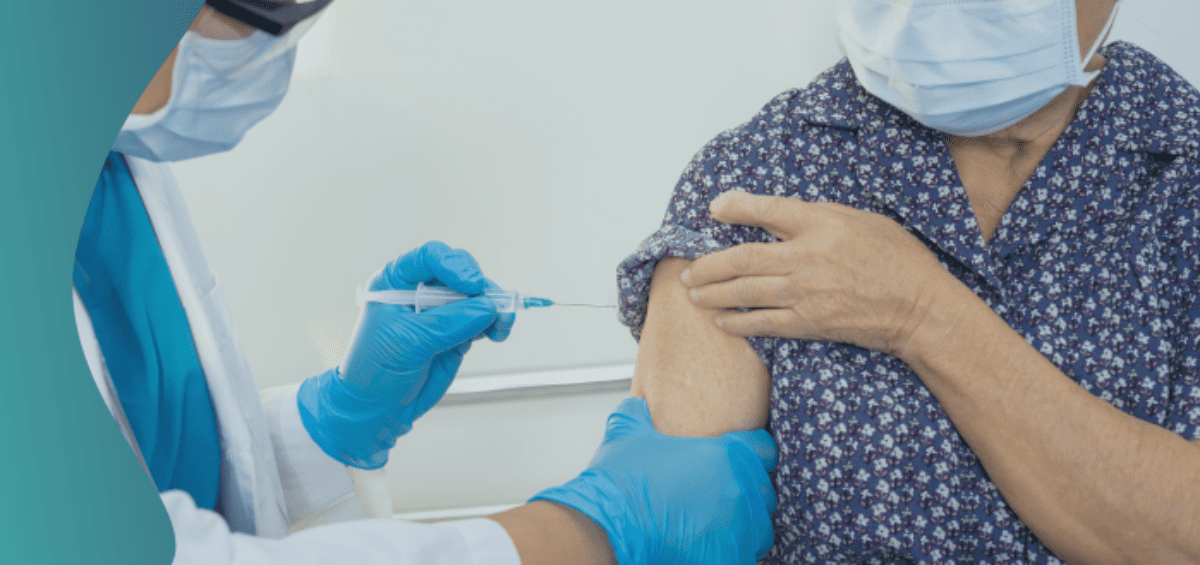December 4, 2020
The unprecedented year of 2020 is set to conclude with COVID-19 cases numbering higher than they have ever been in the United States. However, recent news of effective vaccines in development by companies such as Pfizer, Moderna, and AstraZeneca offer encouragement to patients and health care providers across the country as we approach their anticipated release.
Once a COVID vaccine (or vaccines) is approved for wide distribution, time will be of the essence in order to quickly bend the curve of this pandemic and save lives—especially among health workers and others who have been disproportionately affected. According to The COVID Tracking Project, for example, Native Hawaiians/Pacific Islanders are among the most likely to have contracted COVID-19, while Black or African American patients have the highest mortality rates nationally. In our own network, which serves more than 1.5 million Hispanic patients, the Latino community has been particularly hard hit by this virus.
To address these disparities, we must work toward a vaccine rollout that is as equitable as it is effective.
Advocating for Equitable Vaccine Distribution
OCHIN is advocating to ensure that historically marginalized communities are not excluded from accessing safe, affordable, and timely immunizations against COVID-19.
Throughout this pandemic, OCHIN network data has shown that Hispanic/Latino patients are about twice as likely (and Black patients are about 2.5 times as likely) as white patients to have a COVID-19 diagnosis in the OCHIN Epic EHR. These COVID health disparities are well-documented outside of our network as well, making it essential that we develop an equitable framework to ensure that approved COVID vaccines reach the providers and communities who need them most. For example, those at a higher risk due to systemic racism as it manifests in limited access to health care, single-family housing, or virtual employment.
The OCHIN network of community health centers and local public health clinics serves roughly 6 million uninsured and underinsured patients nationally, at least 60% of whom are racially diverse. These community-based providers have earned local trust and have already proven effective at immunizing diverse patient populations, with vaccination rates among Hispanic/Latino patients in our network being particularly high, especially for flu vaccines.
Additionally, lack of insurance—a common barrier to immunization—does not appear to prevent patients in the OCHIN network from receiving flu and other preventive vaccines. This demonstrates the value these community-based clinics offer in effectively disseminating a COVID vaccine when the time comes, as well as the importance of ensuring they receive an ample supply.
Preparing our Network for a COVID-19 Vaccine
As a health IT services provider, OCHIN also has a tactical role to play in supporting more than 20,000 providers across our network with the tools for rapid and effective COVID vaccine dissemination. We are actively reviewing our current capabilities to ensure that core vaccine management services within OCHIN Epic EHR and our COVID-19 mobile app are optimized and ready to deploy at scale.
Current tools and functionality for the flu vaccine can support COVID vaccinations and will be enhanced to offer members more flexibility to administer mass immunizations. Upon vaccine approval, we will add vaccine codes to OCHIN Epic EHR, roll out related reports, and provide ongoing support with best practice workflows and related materials to aid our members. This is core to what we do as a health IT service organization and our system is ready to accommodate an influx in demand for COVID vaccinations.
We will also enhance our EHR-integrated mobile app, which is already being used for COVID patient testing and triage in Washington state, to pave the way for mass immunizations. Additionally, through a new preferred technology partnership, OCHIN now offers TruMed System’s AccuVax and AccuShelf inventory management and vaccine refrigeration tools to our members. This all-inclusive inventory control system ensures vaccines are tracked, stored, and distributed for optimal effectiveness. It also manages vaccine reporting and inventory for over 6,000 doses, automatically documents every transaction, and automates Centers for Disease Control and Prevention (CDC) and Vaccines For Children (VFC) program compliance.
Supporting Public Health Reporting & Response
Of course, no single health care organization or network can turn the tide on this pandemic alone. That’s why OCHIN is also looking beyond our own network to support more robust data and reporting standards in service of an integrated, national public health infrastructure.
OCHIN already uses national standards for data exchange and standard data reporting, which includes race, ethnicity, language, patient matching, and other essential patient safety information, to help public health authorities identify and address the disparate impact of COVID-19 in their communities. Our recent eCR Now integration will enhance the bidirectional flow of relevant vaccine information between providers and public health authorities via automated electronic case reporting. In fact, our network has already delivered more than 314,000 COVID case reports to the CDC and we are prepared to support local, state, or national vaccine registries as needed through this centralized, real-time reporting mechanism. Additional adoption of this gateway on a wider scale would close critical data gaps, modernize vaccine registries, and enhance our nation’s capacity for a coordinated public health response to future pandemics.
OCHIN’s network of community-based providers are trained and equipped with the tools and infrastructure to support widespread COVID vaccination. In close coordination with public health agencies, providers, and patients in underserved communities, we stand ready to help immunize against COVID-19.













